
Trinity College Dublin - Centre for Practice and Healthcare InnovationProject Coordinators
TCPHI was established in March 2012 within School of Nursing and Midwifery at Trinity College Dublin (TCD). The aim of TCPHI is to develop and implement evidence informed practice and build the capacity of individuals who are currently working or aspire to work in the areas of practice and healthcare innovation. TCPHI focuses on creating an environment that facilitates interactive collaboration between patients, caregivers, health professionals, healthcare providers, our colleagues at TCD and other universities, research and innovation centres, health policy makers and industrial and enterprise partners.
The overall coordination of the project will be at Trinity College Dublin (TCD) who will be the legal entity responsible for all contractual arrangements with the EC. TCPHI will lead Work Package 4 Developing a Behavioural Change Assessment Tool Kit and Framework to improve the adoption, sustainability and scalability of ICT-AT within the ecosystem.
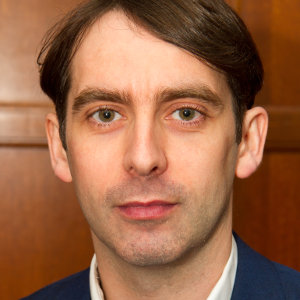
John Dinsmore
Project Coordinator
Dr John Dinsmore is the Health Innovation Lead and Deputy Director of the CPHI, his role involves building and leading teams to research and develop (R&D) new technologies, services and practices in a wide range of healthcare areas (these have included dementia, stroke, COPD, obesity, diabetes, mental health, autism, intellectual disability). Key to this R&D approach is the ability to link research with entrepreneurs, industry and enterprise bodies. Focus is on developing research for healthcare market spin out opportunities, which include the licensing of new intellectual property, innovating on existing technologies and services, spin out of campus companies and development of industry based healthcare research.
Dr John Dinsmore is the project coordinator of ProACT. He will act as the intermediary between the EC and the consortium as well as the supervisor of the overall progress of the project.
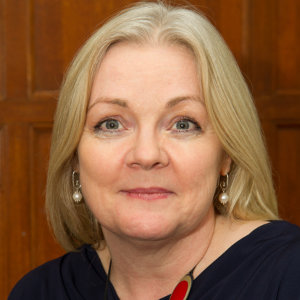
Dr Anne Marie Brady
Dr Anne Marie Brady is Director of Centre Practice & Healthcare Innovation, in the School of Nursing & Midwifery at Trinity College Dublin. She has over 28 years of clinical practice, education and research experience in nursing and health care management. Due to her clinical experience, research and teaching she had gained significant understanding of health service delivery issues in both the Irish and International context. She has conducted research studies in collaboration with health service providers to examine issues around patient related outcomes measures, workload measurement, practice development, patient safety and competency among health care workers. More recently her research has been concerned with alternative strategies to responding to the burden of health care around chronic illness. She has recently commenced a national and multi-site evaluation of integrated care in dementia.

Professor Mary McCarron
Professor Mary McCarron is Dean of Faculty of Health Sciences, at Trinity College Dublin and an internationally recognized researcher on quality of life and care in the areas of intellectual disability, ageing, chronic illness, dementia, and palliative care.
Professor McCarron will assist the overall coordination of the project at Trinity College Dublin (TCD).
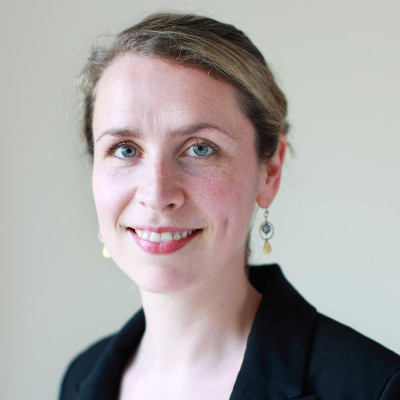
Dr Emma Murphy
Dr Emma Murphy is a research fellow on the ProACT project in the Trinity Centre for Practice & Healthcare Innovation (TCPHI) in the School of Nursing and Midwifery at Trinity College Dublin. Previously she was awarded an Irish Research Council postdoctoral research fellowship investigating the potential of inclusive technology to support older adult learners. Emma has significant experience in the design and evaluation of user interaction techniques for older adults and people with disabilities and has published extensively in this area. Emma completed her PhD at the Sonic Arts Research Centre at Queen’s University Belfast and is also a graduate of Trinity College Dublin. She has previously worked as a postdoctoral researcher at Dublin City University and McGill University, Montreal. In addition to her academic expertise Emma has experience working in both NGO and industry sectors. Emma will contribute to all aspects of research on ProACT with a particular focus on user requirements gathering in WP1 and developing a framework for behavioural change as part of WP4.
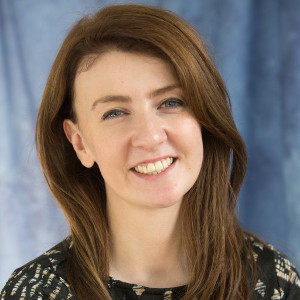
Caoimhe Hannigan
Dr Caoimhe Hannigan is a Research Fellow and Project Manager for ProACT. Caoimhe received a BA (Hons) in Psychology from University College Dublin, MSc in Applied Psychology from University of Ulster, and PhD in Psychology from Trinity College Dublin in 2016. Caoimhe has significant experience in the design and implementation of research related to cognitive function, health and well-being in older populations. Her key research interests include modifiable risk factors for chronic health conditions and dementia, brain health and dementia prevention, successful ageing, and interventions to support health and well-being in older adults. She previously worked as Study Coordinator for the NEIL Memory Research Unit in Trinity College. She was also a collaborator on the FP-7 funded Hello Brain project, the BIOMARKAPD project at St James’ Hospital and the COASTAL project at Trinity College.
Caoimhe will lead project management activities in relation to TCD’s role as coordinator for ProACT, and will also contribute to research and development of Work Packages 1, 4 and 5.
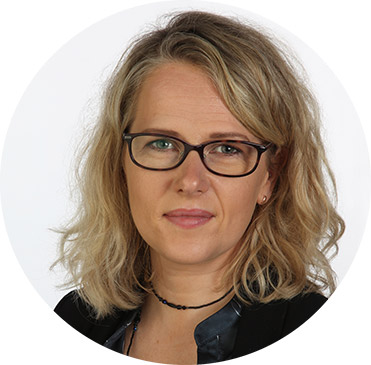
Dr Mary Galvin
Dr Mary Galvin is a postdoctoral research fellow on the ProACT Project, based in the Trinity Centre for Practice & Healthcare Innovation (TCPHI) in the School of Nursing and Midwifery at Trinity College Dublin. Her research interests are within human computer interaction, experience-centred design, and patient public involvement in health research. Mary completed her PhD in Psychology at University College Cork where she was awarded a scholarship under the Digital Arts and Humanities Programme. This was funded under the Programme for Research in Third Level Institutions Cycle 5. Since then she has worked at Dublin City University, the Centre for Innovative Human Systems at Trinity College Dublin, and University College Dublin (across H2020, FP7 & Enterprise Ireland funded projects) exploring how digital design can respond to, and help understand, society’s health and wellbeing.
IBM
IBM has the world's largest research organization, with more than 3,000 scientists and engineers working at 12 Labs on 6 continents. IBM invests more than $5 billion a year in R&D and is the world’s leader in patent filings. In aggregate, the company has filed more than 88,000 patents worldwide.
IBM Research – Ireland was established in July 2010. The Lab is one of 9 research laboratories located outside of the United States. In Ireland, 60 percent of the technical staff has a doctorate degree in computer science, electrical engineering, mathematics, or a related field.
IBM Research will contribute to the following aspects of the ProACT Project:
- Research and development around the InterACT federated querying and Cloud infrastructure (WP4) and interfaces to technology ecosystem (WP3).
- Analytical methods for risk prediction (WP4).
- Privacy constraints and models (WP4).
- Dissemination and exploitation, both in terms of research publications and connections to the market (WP6).
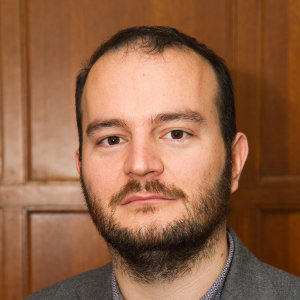
Dr Spyros Kotoulas
Dr Spyros Kotoulas (PI) is leading research around applications of Semantic Technologies for Smarter Care. His research interests lie in data management for semi-structured data, Semantic Web, Linked Data, reasoning with Web data, flexible data integration methods, stream processing, peer-to-peer and other distributed systems. The application domain of his current research is Care Coordination (Social care and Healthcare in particular). He is working on integrating, understanding and easing access to large numbers of datasets, heterogeneous in terms of size, format, update rate, complexity and semantic domain. He has been part of the teams that won the third prize at the Billion Triple Challenge in 2008, the first prize at the IEEE Scale Chalenge in 2010 and the second prize at the Semantic Web Challenge in 2012 and has co-authored more than 50 articles in international peer-reviewed venues. He has co-authored articles and served in the programme committees of all major conferences in the Semantic Web field (WWW, ISWC, ESWC, HyperText, KCAP) and participated in several EU projects (FP7 OpenKnowledge, FP7 LarKC, IMI OpenPHACTS). Spyros was previously at the Knowledge Representation and Reasoning Group at the Vrije Universiteit Amsterdam.
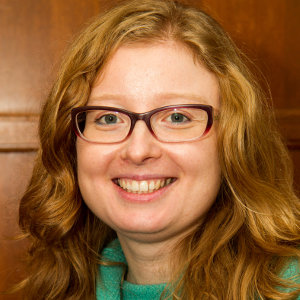
Dr Alessandra Pascale
Dr Alessandra Pascale (WP4 leader) received the Bachelor’s degree (with honours) in Telecommunication Engineering from Politecnico di Bari in 2006. She received the Master degree in Telecommunication Engineering from Politecnico di Milano in 2009 (mark 110/110) with a thesis about Traffic monitoring and modelling for Intelligent Transportation Systems. She was also enrolled in ASP program (Alta Scuola Politecnica, a school of excellence between Politecnico di Milano and Politecnico di Torino). For the master thesis she obtained two awards, one from IBM in 2009 and the other from AICA and Confindustria, in 2010. She received the PhD degree from Politecnico di Milano in 2013 with a thesis with title Traffic monitoring in ITS: wireless architectures and algorithms for traffic state estimation. She was visiting researcher at University of California, Berkeley, in the TOPL group from February 2012 to July 2012. She worked for 6 months in the framework of the European research project DIWINE on cooperative algorithms for dense wireless cloud networks. At the present time she works as a Research Scientist in the IBM Smarter Cities Technology Centre in Dublin, Ireland. Her current research interests are in the field of signal processing, in particular statistical (centralized/cooperative) estimation and prediction approaches
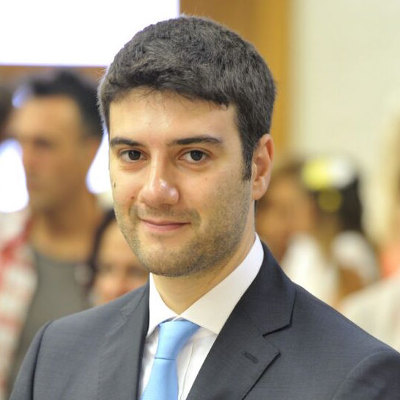
Pierpaolo Tommasi
Pierpaolo Tommasi is a Research Software Engineer focusing on Semantic Web and Cognitive technologies. He works at IBM Research Ireland in the Smarter Cities Technology Centre. He received his Master in Computer Engineering from Alma Mater Studiorum Bologna (Italy) in 2012 with his thesis entitled “Fast RDF indexing and querying by using Prefix Tries”. He has been part of the teams that won the third prize at the Semantic Web Challenge in 2013 (in the 12th International Semantic Web Conference) and the best in paper award in the ESWC in 2014. He has co-authored articles in different major conferences in the Semantic Web field (WWW, ISWC, ESWC). Presently his projects involve knowledge-based system for health, collaborating with Academia and other IBM labs across the world.
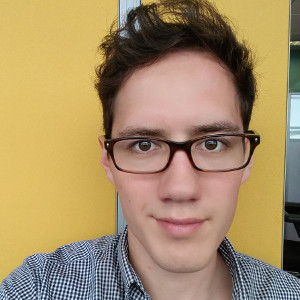
Dr Stéphane Deparis
Dr Stéphane Deparis is a research scientist at IBM Research lab in Dublin. His research interests are centered on Preference Modelling and Decision Support. He has worked on various projects ranging from automatic graph building of medical knowledge to analysing how lay people understand visual representations of probability. He is working on a risk model to support the care of Persons with Multimorbidity for ProACT. He received a Masters degree in Optimization and Decision theory from Paris Dauphine University, and the Ingénieur Civil des Mines degree from Mines Nancy in 2008. He received a PhD from Ecole Centrale Paris in 2012 for his thesis “The effect of multicriteria conflict on the expression of preferences, an empirical approach”. He also taught preference modelling and decision aid at Ecole Centrale Paris while completing his PhD.
AIAS Bologna Onlus
AIAS Bologna Onlus is an end user driven association of persons with disabilities of all ages and their carers. The organisation has a track record of developing and delivering highly innovative services in the field of social care and assistive technology. Currently AIAS manages three Centres for Assistive Technology and Friendly Living Environments on behalf of the local (health) authorities in the Region Emilia Romagna.
In the ProACT Project AIAS has an active role in most work packages, in particular in WP 1 (Ecosystem definition) and WP 5 (Trial implementation and Evaluation). Within these WP's AIAS will implement a local pilot with its partner ASP Città di Bologna in the framework of an international study in factors that impact on the succesful transfer of innovative integrated care platforms across regions and sectors.
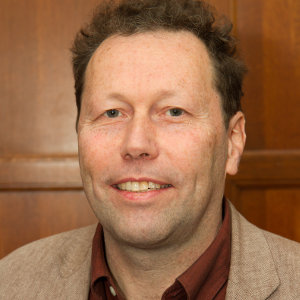
Evert-Jan Hoogerwerf
Evert-Jan Hoogerwerf is Head of the Sector Projects and Innovation. As a manager and researcher he was involved in different projects related to disability, technology and active and healthy ageing. He is the past president of the Association for the Advancement of Assistive Technology in Europe.

Dr Lorenzo Desideri
Dr Lorenzo Desideri has a multidisciplinary background in applied psychology, cognitive and behavioral psychotherapy, assistive technology, and health services research. He has working experience in EU funded research projects, academia and public health sector.
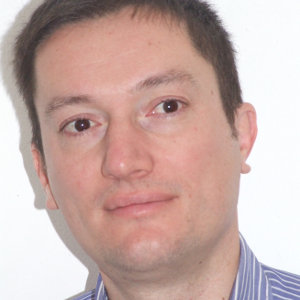
Massimiliano Malavasi
Massimiliano Malavasi is an engineer and HMI expert. He’s the coordinator of the research and development unit of the AIAS Ausilioteca AT team. Malavasi has a long term experience in clinical and research AT work, identifying and building personalised systems for people with severe disabilities and elderly. Malavasi is also part of the AT assessment team of AIAS Ausilioteca. He’s a founder and actually a board member of AitAAL, the Italian association for Ambient Assisted Living.
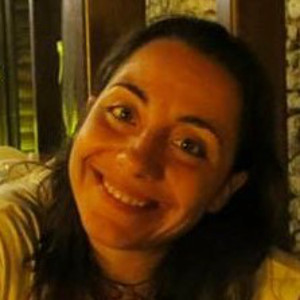
Ms. Valentina Fiordelmondo
Ms. Valentina Fiordelmondo is a staff member of AIAS Project and Innovation Sector. Since 2011 she is working as a researcher and data analyst in regional and EU founded projects for private institutions and academia. She has a Master Degree in Economy and Finance (2008) and a Master degree in Social policies and sustainable development of the territory (2011).
NetwellCASALA, Dundalk Institute of Technology
NetwellCASALA is an applied research centre at Dundalk Institute of Technology, focused on enhancing the quality of life and well-being of older people and those who care for them, through more integrated community-oriented services, more sustainable home and neighbourhood design, and more age-friendly technologies - with the ultimate aim of enhancing longer living in smarter places. We work collaboratively to provide the services that older people need, when they need them, in the place they call home. Our activities involve an array of disciplines including the social and behavioural sciences, health and medical sciences, computer science, engineering, design, marketing and business administration.
Within the ProACT project, NetwellCASALA will contribute across all work packages, focusing on requirements gathering, technology design and testing and data aggregation. NetwellCASALA will lead Work Package 5 and coordinate the ProACT trials in Ireland.
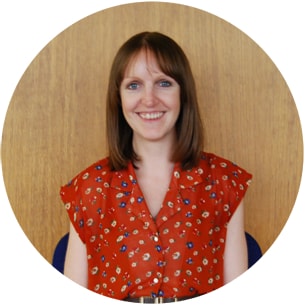
Dr. Julie Doyle
Julie is a Research Fellow in Human Computer Interaction (HCI) at NetwellCASALA. Julie received a BSc (Hons) degree in Computer Science from University College Dublin in 2002 and a PhD in Human Computer Interaction from UCD in 2006. Julie joined NetwellCASALA in January 2011 and leads HCI research that crosses the fields of ambient assisted living, falls prevention, emotional wellbeing and telehealth. Her current research is examining the effectiveness of various types of feedback to convey health and wellbeing information to older adults; how to increase older adults’ awareness of their own health and ultimately support them in self-management of their health with the goal of enhancing quality of life. Julie is Principle Investigator on the H2020 ProACT project and Co-Principle Investigator on the SpONSOR and Maestro projects. She is also leading the design of the Alone platform under the ThinkTech project.
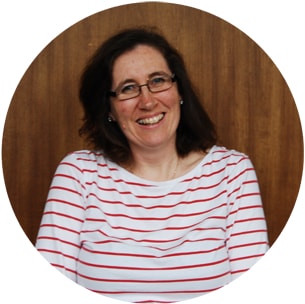
Suzanne Smith
Suzanne earned a B.Soc.Sc. from UCD and worked in health and education in the U.S. for fifteen years before returning to Ireland and setting up her own business with a focus on intercultural and anti-racism training and research. After completing a Higher Diploma in Business at DkIT in 2012, she joined NetwellCASALA as part of a European research team exploring Social Innovation in Ageing initiatives. Suzanne has recently completed her MSc research that explored access to and utilisation of general practice (GP) out-of-hours (GPOOH) services by older people. She was supervised by Dr. Lucia Carragher (NetwellCASALA) and Dr. David Getty (Dept. of Humanities, DkIT). Currently Suzanne is working on the ProACT project.
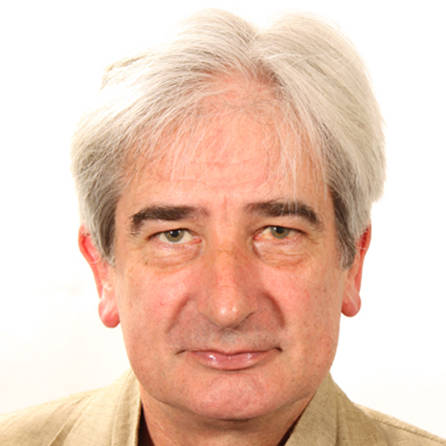
Rodd Bond
Rodd Bond is the founder and director of NetwellCASALA and an architect by background. Rodd has a wide range of interests including creating and sustaining healthy communities and homes; the inter-relationship between environment and peoples’ health and wellbeing; organic design methods and community decision-making frameworks. Rodd is past President of Dundalk Chamber of Commerce and continues to hold a strong interest in local policy and business. Rodd has secured over €10m funding for NetwellCASALA since 2006. Within ProACT, Rodd will contribute to Work Package 6 and will advise on the use of the HaiVisio framework which he was instrumental in developing.
Imec
Imec is the world-leading research and innovation hub in nanoelectronics and digital technologies. The combination of its widely acclaimed leadership in microchip technology and profound software and ICT expertise is what makes imec unique. By leveraging world-class infrastructure and local and global ecosystem of partners across a multitude of industries, imec creates groundbreaking innovation in application domains such as healthcare, smart cities and mobility, logistics and manufacturing, and energy.
As a trusted partner for companies, start-ups and universities imec brings together close to 3,500 brilliant minds from over 70 nationalities. Imec is headquartered in Leuven, Belgium and also has distributed R&D groups at a number of Flemish universities, in the Netherlands, Taiwan, USA, China, and offices in India and Japan. In 2015, imec's revenue (P&L) totaled 415 million euro and of iMinds which is integrated in imec as of September 21, 2016 52 million euro.
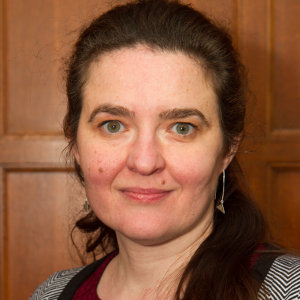
Prof. Dr An Jacobs
Prof. Dr An Jacobs focuses on the integration of social research within all phases of innovative product development. Therefore, she specializes in user research in the broad sense, combining both quantitative and qualitative techniques (design ethnography, proxy technology assessment, probing and projective techniques, scenario’s and persona’s, living labs). Within the team, she co-ordinates projects related to healthcare and virtual (gaming) experience. With both expertise on adoption and appropriation of new technologies from a professional and end consumer point of view.
Role: An will supervise and support the tasks under responsibility of Imec. She will help to scope and design the research protocols and plans for the requirement, test trial and trial phases of the project, making use of her knowledge of the local Flemish context, the Care Living Labs and the Living Lab methodology. Her focus will be on WP1 and WP5, and follow up WP6.
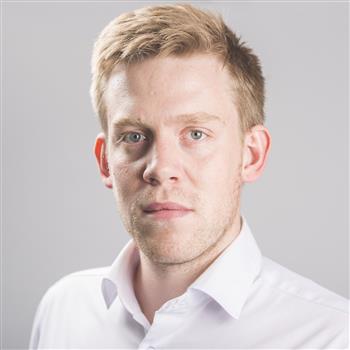
Thomas Van der Auwermeulen
Thomas Van der Auwermeulen is a researcher at Imec. His work focuses on value network mapping and business modelling of Digital Health innovations. After obtaining his Master of Science in Business Economics at the Vrije Universiteit Brussel, Thomas worked as a multichannel consultant at Across Health Shanghai, where he developed educational modules of digital channel effectiveness for pharmaceutical multinationals. Thomas is currently pursuing a degree in Health Economics.

Jonas Albert
Jonas Albert is a researcher at Imec. His focus of work is business modeling for Digital Health innovations as well as stakeholder-based assessment of health-related ecosystems. He holds a Masters Degree in International Health & Social Management of the Management Centre Innsbruck and has diversified work experience in the healthcare sector such as working as a paramedic, in the management of the University Hospital Münster and for Duke Medicine Global (Part of Duke University) in Health Business Intelligence.
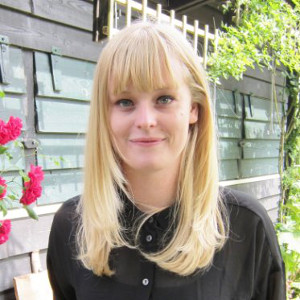
Janneke Kuiper
Janneke Kuiper is a junior researcher at Imec-SMIT. Her work focuses on user research in the healthcare sector, in which qualitative and quantitative methods are combined. She obtained a Masters Degree in Medical Anthropology and Sociology at the University of Amsterdam, and a Masters Degree in Clinical Psychology at Leiden University.
Tyndall National Institute, University College Cork
Tyndall National Institute is a leading European research centre in integrated ICT hardware and systems. Specialising in both electronics and photonics - materials, devices, circuits and systems – Tyndall works with industry and academia to transform research into products in its core market areas of electronics, communications, energy, health, agri-food & the environment. With a network of over 200 industry partners and customers worldwide, we are focused on delivering real impact from our excellent research. Tyndall at University College Cork, Ireland, employs over 460 researchers, engineers and support staff, with a full-time graduate cohort of 125 students. The institute generates over 230 peer-reviewed publications each year. We are experts at designing, miniaturising and prototyping products that are driving connectivity in the application of the industrial internet. The Wireless Sensor Networks (WSN) team has over 10 years of experience and knowhow in designing hardware and we have also developed a WSN mote platform ('the Tyndall mote') that has been successfully deployed in over 40 technology applications. These range from water quality monitoring and building metering to wearable sensing systems for fitness and health.
Tyndall will be using their inertial measurement unit development expertise to track human motion in real time and are also interested in gait analysis (shanks, feet, wrists, lower back…), and balance/stability analysis and Joints range of motion estimation.
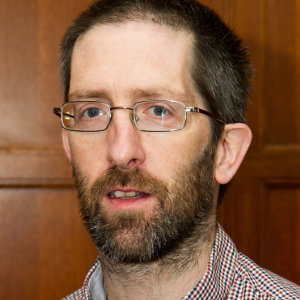
John Barton
John Barton received his MEngSc degree from UCC in 2006. He joined the Interconnection and Packaging Group of the NMRC (now Tyndall National Institute) as a Research Engineer in 1993. Currently, Team Leader of the Industry Projects team in the Wireless Sensor Networks (WSN) group where his activities include working with industry to help them move up the value chain by collaborating with the WSN Group and Tyndall. As PI on the EI funded D-Systems project John has been the leader in development of the Tyndall Wireless Sensor Mote platform. He has authored or co-authored over 100 peer reviewed papers.
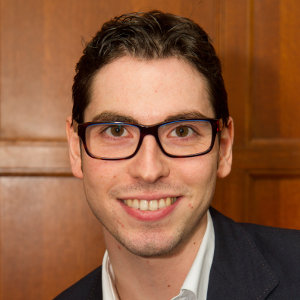
Salvatore Tedesco
Salvatore Tedesco received the B.Sc. degree (cum laude) in information technology engineering and the M.Sc. degree (cum laude) in telecommunications engineering from the University of Salento, Lecce, Italy, in 2008 and 2011, respectively. He collaborated with the Electromagnetic Fields Group, University of Salento, from September 2011 to April 2012. Since April 2012, he has been with the Wireless Sensor Networks Group, Tyndall National Institute, UCC, Cork, Ireland as an Application Engineer. His experience includes RFID technology and its applications in different contexts, antenna design, wearable technologies for healthcare and sports science, high performance wireless inertial measurement, ultra-wideband, indoor/outdoor localization. His current research activities focus on motion analytics and algorithm development for motion capture of people. He is also co-author of several papers published in international peer-reviewed journals and conferences.
Treelogic
Treelogic is an R&D intensive company which provides customers with information and communication technology based solutions, specializing in innovation. Treelogic’s research and innovation activities are focused on big data and analytics, computer vision and Internet of Things. In ProACT Treelogic will develop specific apps for the healthcare of multi-morbid patients, based on predictive algorithms and models.
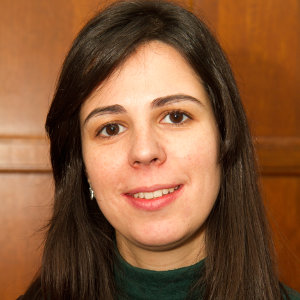
Tatiana Silva
Ms. Tatiana Silva holds a Master Degree in Biomedical Engineering from the University of Minho (Braga, Portugal), specialized in ICT for Healthcare.She has experience in R&D project management related to a wide range of technologies. She is a senior researcher in the R&D Department in Treelogic and she is/has been involved in several European projects, coordination of DAPHNE project (Data as a Service Platform for Healthy Lifestyle and preventive medicine), Skin Monitor project (Diagnosis of Skin Cancer Based on ICT Tools) and RAMSES project (Internet Forensic platform for tracking the money flow of financially-motivated malware), and between others, participating in H2020 Unity (strengthen the connection between the police and the diverse communities) and ProACT projects.

Julia Lastra
Julia Lastra received a BS in Applied Mathematics and Computation by the University of Oviedo (Asturias, Spain) and a MSc in Advanced Mathematics by the University of Almería (Andalusia, Spain). She started working in R&D in 2011 as a research assistant in the field of Intelligent Data Analysis and since 2013 works as a Research Scientist as part of the Data Science team in Treelogic. Julia has experience in statistical analysis, programming and data visualization. She has worked in other R&D european projects in the filed of security and has also developed innovative solutions for clients. Her interests in research are graph theory, machine learning algorithms and data analysis. Julia will contribute on ProACT designing and implementing different “Data Analytics” as part of WP3.
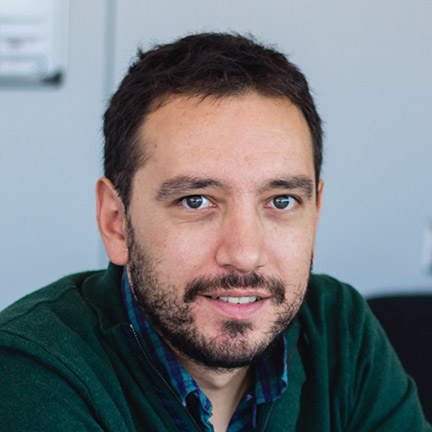
Jaime Medina Maestro
Jaime Medina Maestro holds a degree in Industrial Engineer by Universidad Politécnica de Madrid. In 2009 he started working in a consultancy firm (Euro Funding) in the R&D area, managing innovative projects in the fields of energy, transportation, agriculture and construction. In 2014 he joined a software development company (ASI) as R&D Project Manager, in which he was project coordinator of ABLE TO INCLUDE (621055), a CIP-PSP project focused on the development of accessible ICT technologies for people with intellectual or development disabilities. He was also involved in different FP7 and H2020 projects in the areas of Health, ICT, Smart Cities, such as STORM CLOUDS (621089). In 2016 he joined TREELOGIC as R&D Project Manager, where he is responsible of managing and leading H2020 projects - ProACT (689996) - with an important component of Big Data, Data Science and Computer Vision technologies.
Philips Electronics UK
Royal Philips aims to improve people’s lives through meaningful innovation. Philips is a diversified health and wellbeing company based in the Netherlands and with annual sales in excess of €20 billion. It has recently announced a new structure around two businesses – Healthtech and Lighting. The Healthtech business addresses the continuum of health applications from professional healthcare equipment right through to products and services for healthy living. We combine our unique clinical expertise with insights to develop solutions that deliver value throughout the care cycle: from disease prevention, screening and diagnosis, through to treatment, monitoring and health management. We are there wherever care is given: in the hospital or at home.
Our scientists and engineers deliver new technologies, applications and service models to enhance and expand the Philips product portfolio for the future. Philips is keen to promote integrated, internet-connected digital services where possible. The new Health Suite Digital Platform is an example of this, providing health data storage, processing and analysis tools to internal and external users across all markets. Philips Research UK in Cambridge is part of a global research organisation providing technology options and service innovations to the company. Here we focus on home healthcare: improving care pathways for specific conditions where a significant part of treatment or follow-up is to be delivered at home. We do this in partnership with clinical experts in the UK and Europe, academia and through participation in publicly funded trials and pilots. A further research group in Cambridge studies oral healthcare.
The main role of Philips Research, Cambridge, will be to develop technology and deliver a secure end to end system that meets the needs of all stakeholders creating a care platform. This will be done within WP2 where monitoring solutions from NetwellCASALA and Philips will be used to gather patient data and provide an API that enables the data to be analysed. Novel and existing technology will be built into the system that will be deployed in the trial sites.

David Walker
Mr David Walker (B. Eng Hons) is a senior scientist at Philips Research Laboratories in Cambridge UK with 30-year experience in research, technologies and development. He has been working on remote health monitoring and recently extending telehealth systems to cover the monitoring of people with neurodegenerative disease. David led the Philips participation in SAPHE – a 3 year DTI funded collaborative project on next generation telehealth and telecare systems. In SAPHE, elderly people living at home with long-term conditions such as COPD and Heart Failure were remotely monitored with patient data being sent to both professional and non-professional carers. Participatory design was used to elicit requirements from all stakeholders. The project culminated with a trial in collaboration with Liverpool PCT. David has also built innovative systems for adherence monitoring and the unobtrusive measurement of lung function

Paul Fulton
Mr Paul Fulton (B.Eng Hons) is a Research Scientist with extensive expertise and experience in system design for mobile devices, location tracking systems based on GPS, WiFi, inertial sensing and proprietary approaches. He has worked on product development activities for expanding the Home Healthcare business of Philips including their market-leading Personal Emergency Response system. This work is closely linked to a business development approach that values early and extensive use of customer confrontation to test concepts, plus identification of external partners to accelerate the development process.
Home Instead Senior Care
Home Instead Senior Care is recognised as the global leader in providing home care for seniors. It is the company’s mission ‘to enhance the lives of older people and their families’. Having successfully developed and implemented its business model for in-home non-medical care in the U.S., the home care company has successfully deployed the business in 20 countries globally, where more than 1000 independently owned and operated franchise businesses now deliver non-medical services following the Home Instead Senior Care business model.
To date, the company has created more than 5,000 jobs for franchise owners and their office staff; Establishing more than 65,000 jobs for formal caregivers; Serving more than 1,000,000 clients; Providing 50 million hours of service annually; and is now the largest senior home care business in the world.
Home Instead Senior Care has been operating in Ireland since 2005 and now has 22 offices nationwide, employing 4,500 formal caregivers and caring for 4,000 clients annually. Home Instead CAREGivers provide care in the homes of older people in the community, helping them maintain a happy, healthy and independent life at home for longer than otherwise possible. As a preferred provider for the HSE and ISO 9001:2008 Healthmark approved, Home Instead Senior Care will assist in the recruitment of clients and dedicated, trained, formal CAREGivers to assist in the process of trial assessment and delivery to embed the ProACT ecosystem.
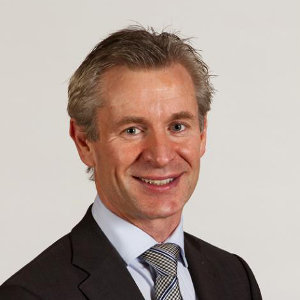
Ed Murphy
Ed Murphy is the CEO of Home Instead Senior Care Ireland. Having set up a number of franchise organisations in Ireland, Ed Murphy set up Home Instead Senior care in Ireland in June 2005 with business partner, Michael Kearney. In addition to establishing the organisation, Ed Murphy serves as Chief Executive Officer.
Ed has strategically overseen the growth and development of the international home care provider in Ireland. In the 11 years it has been operating in the country Murphy has provided strategic advice and support to both the local franchise offices and the Franchise Support Team. He has guided the network to provide expertise in the areas of senior care, training, business development; sales and marketing; customer service; people management and recruitment.
He is committed to changing the face of ageing in Ireland and has been involved in a number of different programmes to make this happen. For example, in addition to setting up Home Instead Senior Care, Murphy has set up Home Care and Community Care Ireland, the trade association representing home care providers in Ireland, which has achieved securing VAT exemption on the cost of home care as well as getting government to allow tax relief on the cost of home, and consequently making the cost of home care more affordable for seniors and their families.

Emma O'Byrne
Emma O’Byrne is a research assistant working on the ProACT Project for Home Instead Senior Care. Emma completed a BA Psychology at UCD in 2016 and went on to complete an MSc in Health Psychology, at Middlesex University London, graduating in December 2017. While in London, Emma worked as a research assistant with The Wolfson Institute of Preventative Medicine on a 6-month project working with vulnerable adults. Emma has significant experience working with older adults in a caring and research environment. Before joining the ProACT team, she gained clinical experience while working as an Assistant Psychologist at St. Columcille Hospital Dublin.
AAATE - Association for the Advancement of Assistive Technology in Europe
The Association for the Advancement of Assistive Technology in Europe (AAATE) is the main European sector organisation for Assistive Technology (AT) stakeholders. The Association has institutional and individual members that collaborate in advancing AT across Europe and worldwide. With members in almost all European countries AAATE has an excellent observatory on developments in the sector. AAATE applies a broad interpretation of the term "Assistive Technology" addressing all aspects related to the role of technology for increasing the activities, partecipation and quality of life of persons with disabilities and the ageing population.
Within the ProACT project AAATE has a role in dissemination activities and in the implementation of a European wide study into factors that impact on the successful transfer of integrated care platforms from one context to another.
Peter Cudd
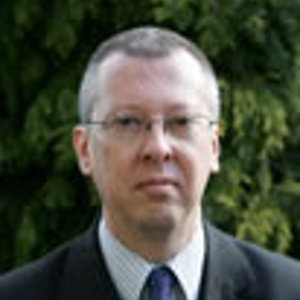
EASPD – European Association of Service Providers for Persons with Disabilities
EASPD (European Association of Service providers for Persons with Disabilities) is a European NGO network representing over 11,000 social and health support provider organisations across Europe and across disabilities. The objective of EAPSPD is to promote equal opportunities for persons with disabilities through effective and high-quality service systems. To this end EASPD work towards ensuring the full implementation of the UN Convention on the Rights of Persons with Disabilities (UN CRPD) and is accredited to the Conference of States Parties to the Convention on the Rights of Persons with Disabilities.
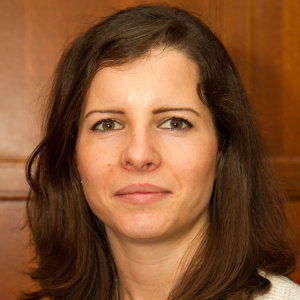
Sabrina Ferraina
Ms Sabrina Ferraina has a degree in Clinical and Neuro Psychology. She has over 8 years of experience on human rights and needs assessment, the development of training programmes and the monitoring of human rights for persons with mental health issues, intellectual disabilities and/or with support needs. In the past years she gained extensive knowledge on EU project management, EU legislation concerning social and disability policies and international frameworks such as the United Nations Convention on the Rights of Persons with Disabilities. She works full time as Policy Manager at EASPD.
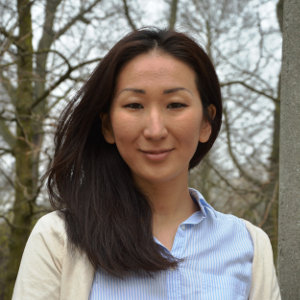
Asel Kadyrbaeva
Ms Asel Kadyrbaeva is a Research and Development Officer at EASPD. In her role, she is responsible for coordinating the organisation’s research and knowledge building activities as well as for carrying out research projects. She is also the facilitator of EASPD’s Interest Group on Workforce Development and Human Resources. She has a Master degree in Development Studies from the University of Antwerp (2011) and a Master degree in European Political and Social Integration from the Vrije Universiteit Brussel (2015).
ASP - Agenzia Servizi alla Persona Città di Bologna
ASP Città di Bologna (Public Company for Services to the Person, own by the Municipality of Bologna – 99% - and other institutions – 1% ) was established on 1 January 2014 as an evolution of previous local welfare institutions. ASP’s main goal is the provision of integrated social health services for the elderly and disabled adults, to ensure a better quality of life. The company also focuses many efforts on innovative actions for the prevention of social emergencies and the promotion of social inclusion.
ASP will be primarily involved in defining care ecosystems and identifying pilot sites serving target audience members (WP1) and in the Transfer/Feasibility Trial (WP5). The general contribution of ASP to ProACT is providing the proper knowledge on services and on care work complexity, ensuring that the patients’ perspectives and the integration of community, health and social care are embodied into the deliverables of the project.
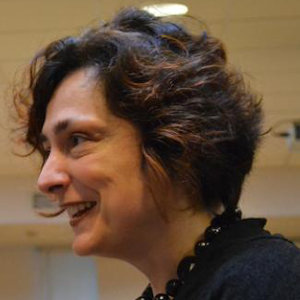
Elisabetta Scoccati
Elisabetta Scoccati. Since 2014 is CEO of ASP Città di Bologna. Scoccati has experience in the management of public entities and social health services. She is specialized in Health Care Sociology. She is the Project Legal Signatory for the ProACT.

Lorenza Maluccelli
Lorenza Maluccelli she is staff member of the General Direction of ASP with specific responsibilities on European and Priority Projects - PhD Cultural Studies and professional sociologist, she has worked as researcher on a wide range of topics of interest, including care work, and as designer and manager of many social projects at local, national and European level.
Her roles in ProACT are: Lear, Project Contact Person and Researcher.
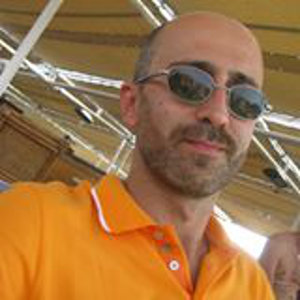
Maurizio Maccaferri
Maurizio Maccaferri, Head of Home Care Service of ASP - He has experience in development of the service quality and the quality of life of the elderly at home. He manages professional, organizational and operational integration between the different roles and sectors of the home care services, particularly referred to the social and health macro areas. He also manages relationships with stakeholders.